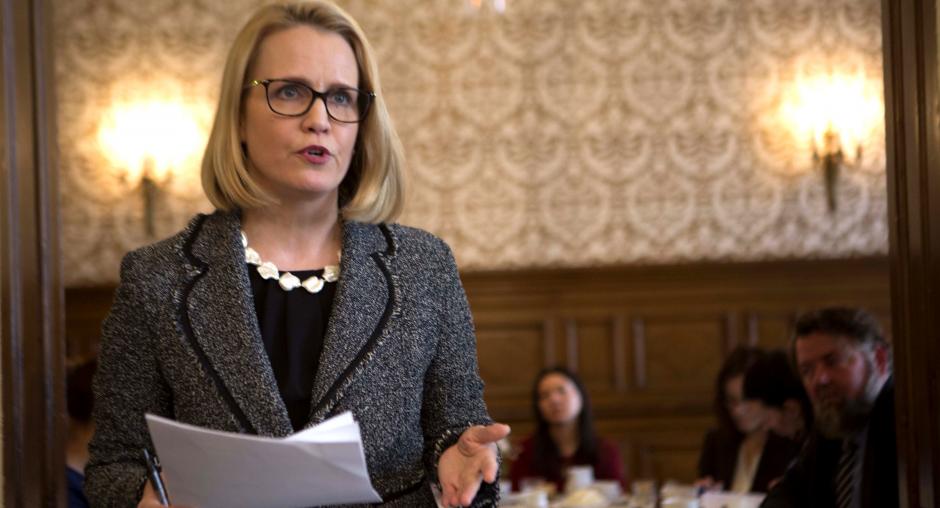Towards Achieving Gender Parity: New Global Approaches?

What strategies are needed to reach gender parity in international and regional organizations like the United Nations and the OSCE? Some fifty delegates of OSCE participating States and OSCE staff members gathered to exchange views on this question at Café Demel in Vienna on 30 January 2018. The event was organized by the Gender Section of the Office of the OSCE Secretary General in co-operation with Norway’s Permanent Delegation to the OSCE.
“International organizations like the UN and the OSCE can and should learn from each other,” said Ambassador Katja Pehrman, Senior Adviser at UN Women. “United Nations Secretary General António Guterres has shown leadership by making gender parity a priority,” she declared. In 2017 the UN established a taskforce to develop measures to work towards this goal. The package of measures includes accountability – a key to change according to Ambassador Pehrman – and requires regular reporting on what has been done for reaching gender parity. Another important focus is creating an enabling working environment that allows all women and men to successfully combine work and family life and reach their full potential.
Pehrman explained that for the UN, gender parity, in addition to being a human rights issue that needs to be addressed by any international organization, is also considered essential for improving the organization’s efficiency, impact and credibility. She stressed the role of social media, as the images organizations publish have an impact on whether women or men apply for a position. “People need to see women working and living their lives where they are, including in the field,” she said.
Micheal Conneely, Acting Director for Human Resources (HR) in the OSCE Secretariat, outlined how bringing gender equality to the forefront of the agenda is a key role of HR leadership. With respect to the gender parity situation, he noted that while progress had been made in many areas, particular categories such as senior management continued to show underrepresentation of women. While traditional measures remain valuable, it is important to constantly rethink and modernize HR approaches, he said, naming examples of recent initiatives such as an Executive Gender Coach Programme for senior leadership, a mentoring programme for women in middle management positions, improved employer branding and outreach and using the new performance management process to strengthen accountability. “An effective approach is not about one specific thing but a comprehensive package of complementary measures that can successfully address challenges,” he concluded.
